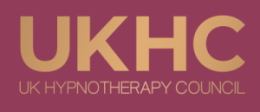

There are many legal provisions and guidelines to be considered. (UK law)

Can I give hypnotherapy to a child without a parent’s consent?
This is a tricky area of law and practice that many hypnotherapists feel unsure about with the result that they avoid the issue altogether, and choose not to work with children unless a parent has given consent to the therapy.
There are many legal provisions and guidelines to be considered, but the primary thing to note is that, whilst there is no doubt the law considers individuals under 18 years of age to be minors, the law also states that children CAN consent to medical treatment from the age of 16.
The relevant provision is found in section 8 of the Family Law Reform Act 1969:
http://www.legislation.gov.uk/ukpga/1969/46
That’s the simple answer.
Parents continue (in most cases) to have parental responsibility for children until they reach 18 years of age, and parents can continue to make medical and legal decisions for the child until this age. This results in a slightly odd situation, whereby a child is entitled to consent to treatment from age 16, but if a parent gives consent, they cannot refuse treatment until they are 18. In hypnotherapy, a parent ‘forcing’ a child is not going to be an issue, but the fact a parent still has a say at this stage can be confusing for us in knowing whether we can accept a child client or not.
The next question is whether children even younger than 16 consent to treatment without knowledge or agreement of the parents. In short, the answer is YES, in some circumstances.
Many will have heard of the Gillick competence test and Fraser guidelines, and perhaps be unsure as to which applies and how. To be clear, the objective test for competence is covered by the term ‘Gillick competence’, in which Lord Scarman stated:
“As a matter of Law the parental right to determine whether or not their minor child below the age of sixteen will have medical treatment terminates if and when the child achieves sufficient understanding and intelligence to understand fully what is proposed.”
The guidelines given by Lord Fraser in that same case pertain specifically to the legality of health professionals giving contraceptive advice to minors. In terms of hypnotherapy, the Fraser guidelines are not determinative of the question of capacity to consent.
A child who is ‘Gillick competent’ must be afforded the same confidentiality as any other patient/client. As such, ANY client who has capacity to consent to hypnotherapy must be afforded confidentiality, and hypnotherapists must not speak to parents without the child’s formal agreement, save in circumstances where there is a risk of death or serious harm, or if disclosure would assist in the prevention, detection, or prosecution of a serious crime, especially crimes against the person such as abuse of children.
Children present certain issues that could potentially be considered a ‘risk of harm’ that would not apply in adulthood. Some examples would be the question of a 14 year old having sexual intercourse, or a 15 year old having a non-sexual but romantic relationship with a 30 year old, or a 15 year old regularly consuming alcohol. In each case there would be less risk to the child once they had reached the age of legal consent or adulthood, but it does form a grey area prior to that stage. It should also be noted that if a practitioner does decide a circumstance presents a serious risk of harm, whilst disclosure may be necessary, the parent may not be the correct person to disclose the information to, for example if they are implicated in child abuse.
The question of when a child becomes Gillick competent is a decision for the practitioner to make. The practitioner must consider whether that child has enough intelligence and understanding to agree to treatment, and make this assessment from their knowledge of the child, the child’s circumstances, and the presenting issues. There is no ‘lowest age’, but in practical terms, courts tend to begin to have serious regard to a child’s views from about the age of 12, and by age 15, those views are usually determinative.
Lastly, accepting a child client does not mean they can be treated in the same way as an adult, for example there are requirements for an enhanced DBS check as unsupervised therapy for children falls under the definition of ‘regulated activity’ pursuant to Schedule 4 to the Safeguarding Vulnerable Groups Act 2006, and there may also be special implications for practice insurance.
If, as a member of the PHN you find yourself confused or unsure about an ethical issue that has arisen in your practice, please feel free to get in touch.
Author – Lucy Hyde, PHN Member